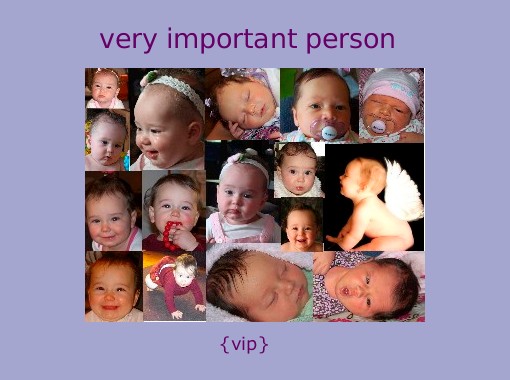When is it the "right" time. every child is different. For my son it was around 3. When he could tell me, "I'm going potty." We actually held off until 3 1/2 for our convenience with a trip to Disneyland, potty training in an amusement park did not sound like fun! So when is the "right" time? I found a great article at Connect With Kids. from www.connectwithkids.com, Emily Halevy CWK ProducerI would suggest meeting with someone who had done it successfully, visiting websites that might offer information, and having a very open mind. Realizing that it may not be the perfect answer in every family, but in some families this may be something worth trying.”
– Karen Dewling, M.D., pediatrician
It's one of the great questions of the ages: when should you begin to potty train your toddler? Researchers at Bristol-Myers Squibb Children's Hospital have narrowed the window down to between 24 and 32 months of age. But this hasn't stopped some parents from attempting to train their babies even younger ... much younger.
It seems that for the Young family it's working. "Psss. You need to go bud? Do you need to go?" Diana asks her seven-month-old son, Dorian, while he's sitting on his infant potty seat.
When he has to go, Diana taught him to make a sign. "See," she points, "now he's doing the potty sign. Do you see his right hand there like that?"
But is he really potty trained?
"Children, when they're toilet trained as young infants are not truly toilet trained," explains pediatrician Dr. Karen Dewling, "Their parents become trained, their caregivers become trained to recognize the infants cues that they need to void or defecate."
She explains that the biggest problem is young babies can't do very much. "Toilet training is a very complex skill that requires the child to recognize the need to go, to control the need to go, to be able to get to the bathroom, remove their clothing, do what they need to do, flush, wash their hands, very complicated language and motor skills are required for the true process."
So, should you try to potty train a child before the age or two or three? She says it may not work, but there's no harm in trying. "I think that a caregiver who's able to recognize a baby's cues is very in tune with that baby, and that's probably a very good thing."
"My friend's say, 'I have never seen a happier baby,' and I think it's because he knows that I'll meet his needs," says Diana, "He doesn't need to cry to get my attention, cause he has my attention all the time."
All that attention may seem like a lot of work, but Diana says it's worth it. "The biggest benefit has been the connection between us. I just feel like I'm a good mother. I feel like I'm doing something for him that he appreciates, and that he needs, and it's the right thing."
On average, children begin potty training around age 2, and girls generally potty train faster than boys. Experts at Southern Cloth Baby recommend looking for the following signs that may mean your child is ready to begin potty training:
- Able to stay dry for an hour or two
- Awareness of bodily functions
- Interest in being clean and dry
- Able to understand and follow simple instructions
- Interest in wearing training pants instead of diapers
- Simple self-dressing
- Interest or curiosity about bathroom habits
However, the experts recommend not to start potty training if the child will be experiencing big changes in the near future such as:
- A new baby in the family
- Moving to a new house or school
- A parent starting work
- The holiday season
Tips for Parents
Potty training can be one of the most daunting tasks faced by you and your child during the early years. Dr. Claire Albright, psychologist and parenting coach, offers the following tips that may make the transition easier:
- Dress your child in underwear at about 28 months of age when the child is at home. Today's disposable diapers provide almost no feedback to the child about when they are wet. Your child will feel uncomfortable in their "big kid" pants when they are wet and may therefore feel motivated to try using the toilet.
- Allow your child to run around naked when you are at home. Having to deal with the urge to eliminate will be much more noticeable to your child when there is nothing to catch it in but the potty-seat.
- Look for signs of potty training readiness in your child. These signs of readiness may include telling you when they are using the bathroom in their diaper, requesting that you change a messy diaper, keeping their diaper dry for hours at a time, showing enthusiasm after going to the bathroom, etc.
- Begin potty training at an appropriate age. Potty training becomes less difficult as your child gets older. Potty training prematurely can make a child feel misunderstood, alone and rebellious. It is often best to wait until the child is three years old to focus on potty training.
- Make potty training fun by giving your child little rewards for sitting on the toilet with no diaper
You could use stickers, crackers, small, inexpensive toys, etc. Using candy could produce sugar cravings and tooth decay, however.
- Purchase a couple of potty training videos designed for toddler viewing. The research shows that the best way to teach any behavior is to have role models demonstrating the behavior. (Live models are more effective than video modeling.)
- Pour cheerios or crackers into the toilet for little boys to take 'aim' at. This challenge taps into a little boy's natural interest in hitting targets.
- Purchase several toddler-level books about children being potty trained. Potty training feels more natural and less stressful to a child who has been exposed to the process at "storybook time."
- Consider allowing other trusted adults to help you to potty train your child. Many preschoolers respond more quickly to input from grandparents, aunts and trusted babysitters than they do to input from their parents in the area of potty training. Some parents report that a grandparent was able to potty train their child during one weekend away.
- Make potty training a top priority on a consistent basis when you have the emotional and physical energy to do it.
References
Southern Cloth Baby
Shemrock International
About Potty Training Your Toddler

 Bayar from Bayanchandmani, Mongolia
Bayar from Bayanchandmani, Mongolia Hattie from San Francisco, California
Hattie from San Francisco, California Mari from Tokyo, Japan
Mari from Tokyo, Japan























 St. Patty's Day Word Scramble
St. Patty's Day Word Scramble











